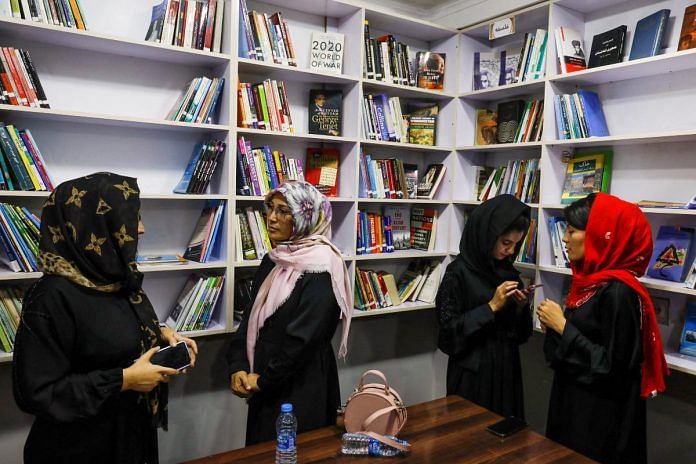United Nations/Kabul: The United Nations told some 3,300 Afghan staff not to come to work in Afghanistan for the next two days after the Taliban authorities signaled on Tuesday that they would enforce a ban on Afghan women working for the world body.
U.N. officials in Afghanistan “received word of an order by the de facto authorities that bans female national staff members of the United Nations from working,” U.N. spokesperson Stephane Dujarric told reporters in New York.
The U.N. is looking into impacts and will meet with Afghan foreign ministry officials in Kabul on Wednesday to seek further clarity, he said. About 400 Afghan women work for the U.N.
Two U.N. sources told Reuters that concerns over enforcement had prompted the organization to ask all staff – male and female – not to come to work for 48 hours. Friday and Saturday are normally weekend days in Afghanistan, meaning U.N. staff would not return until Sunday at the earliest.
The U.N. mission in Afghanistan (UNAMA) earlier on Tuesday expressed concern that female staff in the eastern province of Nangarhar had been stopped from reporting to work.
“There was a much more official communication made in (Nangarhar provincial capital) Jalalabad. We were told through various conduits that this applied to the whole country,” Dujarric, adding there was nothing writing.
“Female staff members are essential for the United Nations to deliver life-saving assistance,” he said, adding that some 23 million people – more than half Afghanistan’s population – need humanitarian aid.
The Taliban administration and the Afghan information ministry did not immediately respond to requests for comment.
Funding cuts?
U.N. Secretary-General Antonio Guterres condemned the ban enforcement in Nangarhar, posting on Twitter: “If this measure is not reversed, it will inevitably undermine our ability to deliver life-saving aid to the people who need it.”
The Taliban administration, which seized power as U.S.-led forces withdrew from Afghanistan after 20 years of war, says it respects women’s rights in accordance with its strict interpretation of Islamic law.
Since toppling the Western-backed government in Kabul, the Taliban have tightened controls over women’s access to public life, including barring women from university and closing most girls’ high schools.
In December, Taliban authorities stopped most female humanitarian aid employees from working, which aid workers say has made it more difficult to reach women in need and could lead donors to hold back funding.
The restrictions did not initially apply to the U.N. and some other international organizations. In January, U.N. Deputy Secretary-General Amina Mohammed flagged concerns that authorities could next restrict Afghan women working at international organizations.
It was not immediately clear whether foreign embassies in Kabul had received similar instructions on female staff.
A ban on Afghan female U.N. workers could pose major challenges to continued U.N. operations in Afghanistan. The founding U.N. Charter states that no restrictions be placed on the eligibility of men and women to work for the U.N.
Aid officials have also flagged the risk that donor countries will reduce funding due to frustration over restrictions on women as other international crises take hold.
The U.N. has made its single-largest country aid appeal ever, asking for $4.6 billion in 2023 to deliver assistance in Afghanistan. So far it is less than 5% funded.
(Reporting by Charlotte Greenfield and Michelle Nichols; editing by Frank Jack Daniel, Mark Heinrich and Josie Kao)
Disclaimer: This report is auto generated from the Reuters news service. ThePrint holds no responsibilty for its content.
Also read: As repression of Afghan women goes on under Taliban, global community urged to join in defence



